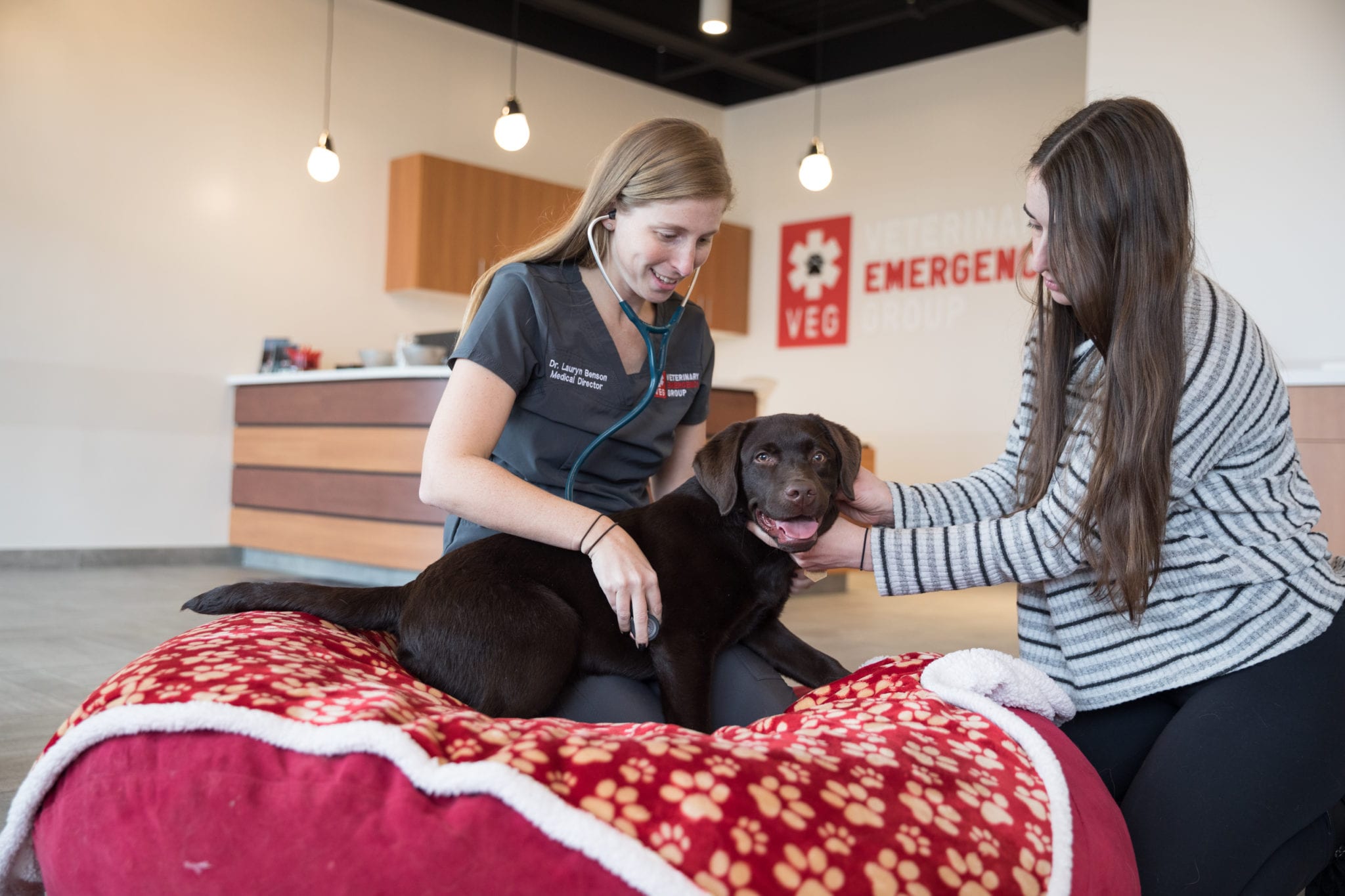Home>Health & Wellness>Common Health Issues>How To Know If Your Dog Is Allergic


Common Health Issues
How To Know If Your Dog Is Allergic
Published: January 26, 2024
Learn how to identify if your dog is suffering from common health issues such as allergies. Discover the signs and symptoms to watch out for.
(Many of the links in this article redirect to a specific reviewed product. Your purchase of these products through affiliate links helps to generate commission for Pawsomeoldies.com, at no extra cost. Learn more)
Table of Contents
Signs of Allergies in Dogs
Allergies in dogs can manifest in various ways, and it's essential for pet owners to be vigilant for any signs that may indicate an allergic reaction. Dogs, like humans, can be allergic to a wide range of substances, and recognizing the symptoms early can help in managing the condition effectively.
Here are some common signs of allergies in dogs:
-
Itchy Skin: One of the most prevalent signs of allergies in dogs is excessive itching. If you notice your dog constantly scratching, licking, or chewing on certain parts of their body, it could be a sign of an allergic reaction. Pay close attention to their paws, ears, and belly, as these are common areas where allergic reactions may manifest.
-
Skin Irritation: Allergic reactions in dogs can lead to skin irritation, which may present as redness, rashes, or hives. In severe cases, the skin may become inflamed and develop hot spots, causing discomfort and distress to the dog.
-
Ear Infections: Dogs with allergies are prone to developing ear infections. If you observe your dog shaking their head frequently, scratching at their ears, or emitting a foul odor from the ears, it could indicate an allergic response.
-
Gastrointestinal Issues: Allergies can also affect a dog's digestive system, leading to symptoms such as vomiting, diarrhea, or excessive gas. If your dog experiences recurrent gastrointestinal problems without any apparent cause, it's important to consider the possibility of food allergies or sensitivities.
-
Respiratory Symptoms: Some dogs may exhibit respiratory symptoms when exposed to allergens. This can include sneezing, coughing, wheezing, or difficulty breathing. These signs are particularly common in dogs with inhalant allergies, such as pollen or dust mites.
-
Chronic Ear or Skin Infections: Dogs with allergies may be more susceptible to recurrent ear or skin infections. If your dog experiences frequent bouts of these infections, it could be an indication of an underlying allergic condition that needs to be addressed.
Recognizing these signs of allergies in dogs is crucial for seeking timely veterinary care and implementing appropriate management strategies. If you observe any of these symptoms in your dog, it's advisable to consult with a veterinarian to determine the underlying cause and develop a tailored treatment plan.
Read more: How To Know If Your Dog Is Allergic To Yeast
Common Allergens for Dogs
Understanding the common allergens that can trigger allergic reactions in dogs is pivotal for pet owners to create a safe and healthy environment for their furry companions. Dogs, like humans, can develop allergies to a variety of substances, and being aware of these potential triggers can aid in proactive allergen management.
1. Environmental Allergens
- Pollen: Dogs can be allergic to pollen from grasses, trees, and weeds, leading to seasonal allergic reactions, particularly during spring and fall.
- Dust Mites: These microscopic organisms thrive in indoor environments and can trigger allergic responses in dogs, causing skin irritation and respiratory symptoms.
- Mold: Exposure to mold spores, whether indoors or outdoors, can provoke allergic reactions in susceptible dogs, manifesting as skin issues or respiratory distress.
2. Food Allergens
- Proteins: Certain proteins in dog food, such as beef, chicken, dairy, and soy, can elicit allergic reactions in some dogs. Identifying and eliminating the specific allergen from the dog's diet is crucial for managing food allergies effectively.
- Grains: While less common, some dogs may develop allergies to grains like wheat, corn, or soy, leading to digestive disturbances and skin issues.
3. Insect Allergens
- Flea Saliva: Dogs with flea allergies can experience intense itching and skin irritation when bitten by fleas. It's not the flea bite itself that triggers the reaction but rather the saliva injected into the skin during feeding.
- Mosquito Bites: Some dogs may exhibit allergic reactions to mosquito bites, resulting in localized swelling, itching, and discomfort.
4. Medications and Chemicals
- Prescription Medications: Certain medications, including antibiotics and anti-inflammatory drugs, can induce allergic responses in dogs, leading to adverse effects that necessitate immediate veterinary attention.
- Cleaning Products: Exposure to household cleaning agents, detergents, or pesticides can potentially trigger allergic reactions in dogs, causing skin irritation or respiratory distress.
5. Contact Allergens
- Fabrics: Dogs can develop contact allergies to certain fabrics or materials, such as wool or synthetic fibers, leading to skin irritation or dermatitis.
- Plants: Contact with certain plants, such as poison ivy or certain ornamental flowers, can provoke allergic reactions in dogs, resulting in skin rashes or inflammation.
By being mindful of these common allergens, pet owners can take proactive measures to minimize their dog's exposure to potential triggers, thereby reducing the risk of allergic reactions. Additionally, consulting with a veterinarian to identify specific allergens through testing can facilitate the development of targeted management strategies tailored to the individual needs of the allergic dog.
Testing for Allergies in Dogs
Identifying the specific allergens triggering allergic reactions in dogs is a crucial step in effectively managing their condition. Testing for allergies in dogs typically involves various diagnostic methods aimed at pinpointing the precise triggers, thereby enabling targeted treatment and allergen avoidance strategies.
1. Intradermal Skin Testing
Intradermal skin testing, performed by veterinary dermatologists, involves injecting small amounts of suspected allergens into the dog's skin and observing the body's reaction. The presence of a raised, red bump at the injection site indicates a positive allergic response to that particular allergen. This method allows for the simultaneous testing of multiple allergens, providing comprehensive insights into the dog's sensitivities.
Read more: How Do You Know If Your Dog Has Anxiety
2. Blood Tests
Blood tests, such as enzyme-linked immunosorbent assay (ELISA) or radioallergosorbent test (RAST), can measure the levels of specific antibodies in the dog's blood in response to various allergens. These tests are particularly useful for identifying food allergies and environmental allergens, offering a less invasive alternative to skin testing.
3. Elimination Diet Trials
In cases where food allergies are suspected, elimination diet trials are conducted to identify the specific food allergens causing adverse reactions in dogs. This involves feeding the dog a novel protein and carbohydrate source for a specified period while closely monitoring for any allergic symptoms. Gradually, potential allergens are reintroduced to the diet to pinpoint the culprits.
4. Patch Testing
Patch testing is employed to identify contact allergens that may be triggering allergic skin reactions in dogs. Small amounts of suspected allergens are applied to the dog's skin under occlusive patches for a specified duration. Any resulting skin reactions help in determining the presence of contact allergies and the specific allergens responsible.
5. Provocation Testing
Provocation testing involves deliberately exposing the dog to suspected allergens under controlled conditions to observe any allergic reactions. This method is particularly useful for diagnosing inhalant allergies, as it allows for the assessment of the dog's response to airborne allergens in a controlled environment.
By leveraging these testing methods, veterinarians can accurately identify the allergens to which a dog is sensitive, enabling the formulation of tailored treatment plans and allergen avoidance strategies. This targeted approach is instrumental in alleviating the dog's allergic symptoms and enhancing their overall well-being.
It's important to note that testing for allergies in dogs should be conducted under the guidance of a qualified veterinarian to ensure accurate diagnosis and appropriate management of the dog's allergic condition.
Treatment Options for Allergic Dogs
Addressing allergies in dogs often requires a multifaceted approach aimed at alleviating symptoms, minimizing exposure to allergens, and enhancing the overall well-being of the affected pets. Upon identifying the specific allergens through diagnostic testing, veterinarians can devise tailored treatment plans to manage allergic reactions effectively.
1. Allergen Avoidance
One of the primary strategies in managing allergic dogs involves minimizing their exposure to known allergens. This may entail implementing environmental modifications, such as using air purifiers to reduce indoor allergens, regularly cleaning bedding and living areas, and avoiding outdoor activities during peak pollen seasons. For food allergies, transitioning the dog to a hypoallergenic diet devoid of the identified allergens is crucial in preventing adverse reactions.
2. Medications
Veterinarians may prescribe medications to alleviate the symptoms of allergic reactions in dogs. Antihistamines, corticosteroids, and immune-modulating drugs can be administered to mitigate itching, inflammation, and other allergic manifestations. Additionally, topical treatments, such as medicated shampoos or ear solutions, may be recommended to address skin and ear-related allergic symptoms.
3. Immunotherapy
Immunotherapy, commonly known as allergy shots, is a long-term treatment option aimed at desensitizing allergic dogs to specific allergens. This involves the gradual administration of allergen extracts to the dog, allowing their immune system to build tolerance and reduce the severity of allergic reactions over time. Immunotherapy is particularly beneficial for dogs with environmental or inhalant allergies.
4. Fatty Acid Supplements
Supplementing the dog's diet with omega-3 fatty acids can help improve skin health and reduce inflammation associated with allergic skin conditions. These supplements possess anti-inflammatory properties, potentially aiding in alleviating itching and promoting healthier skin in allergic dogs.
5. Nutritional Support
Providing a well-balanced and nutritionally optimal diet is essential for supporting the overall health of allergic dogs. High-quality, hypoallergenic diets tailored to the individual dog's dietary sensitivities can contribute to improved immune function and reduced allergic responses.
6. Ongoing Monitoring and Management
Regular veterinary check-ups and diligent monitoring of the dog's condition are crucial for assessing the effectiveness of the treatment plan and making any necessary adjustments. By closely observing the dog's response to treatment and addressing any emerging concerns promptly, pet owners can ensure the optimal management of their allergic pet's well-being.
By combining these treatment options and working closely with a veterinarian, pet owners can effectively manage their dog's allergies, minimize discomfort, and enhance their quality of life. It's important to recognize that each allergic dog may respond differently to treatment, and a personalized approach tailored to the specific needs of the individual pet is essential for achieving optimal outcomes.











